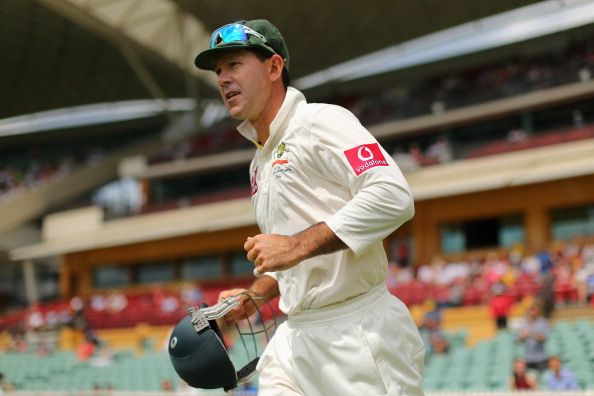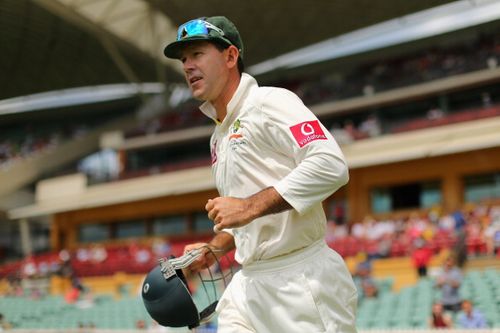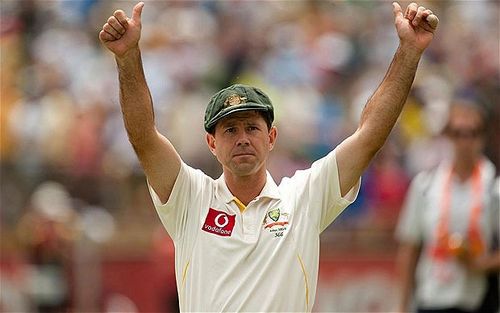
Of cricketers and Punters: The art of being Ricky Ponting

And then there’ll be none…
One upon a time, the mighty Australian cricketers ruled all over the world. Raging and rampaging, their batsmen as well as their bowlers wrecked havoc over their opponents, who despite knowing what they were facing, were still clueless about which players’ marauding attention their team would gain in particular. A common theme in all forms of the game – Tests and ODIs that is, for T20 hadn’t even been invented then – when playing against the Australians was ‘getting the match over with’, rather than anything else.
Rarely did other cricketing sides ever show the Australians that their way was wrong because if they did, and when they did, the Australians came back with a vengeance second to none. Always playing to win, the Australian squad members used every means possible – at times, not always fair – to turn the game to their advantage, to compensate for their loss and their frustration. Contesting a match meant winning, and to win, it was as if they would do anything; no matter what the rest of the world preached and practiced.
Their strength was in numbers; not in terms of the team members but in terms of the individual contributions of each team member. Likewise, each of the 11 members had a different personality: a shade of characterization unique to his own self. Some were brash on the field, while some were quietly domineering. And then there were a few who took brashness to the world, flaunting it like a badge of honour.
Such were these Australians who were like the third-generation incarnation of the once fabled ‘Invincibles’ – the team that had made the cricket-following world bow before them in reverence, no matter whether the world actually wanted to or not, year after year, and trophy after trophy.
The world anointed them with nicknames too. There was Gilly, Haydos, Warnie, and a Pigeon too but more so, there was a certain Punter who hailed from Tasmania.
A quirky guy, Punter was never a true blue black or white shaded personality; rather, he was the perfect example of a grey-shaded personality. Equal parts loved, equal parts hated and thoroughly admired all over – such was Punter’s claim to fame and even, at times, infamy. He wasn’t exactly tall stature-wise, but when he came to bat – as the proverbial number three batsman – his tallness and command became indescribable. He couldn’t bowl, but his fielding was always on target. He never missed a catch just as he almost never allowed himself to be generous to the opposition’s run count. He was as dangerous as a fielder as he was as a batsman simply because he was always on the prowl and forever on the run.

Punter’s capabilities and potential seen over a fruitful 17-year long professional time-span, at times, put him in a neck-to-neck fight with cricketing Gods. But where Gods were mild-mannered and gentlemanly, Punter, being a mortal, committed as many follies as the temple of cricket would allow. There were brawls and fights, judgmental calls against him by those who considered themselves puritans, and there were offensively loud catcalls too. But there was none who called him incompetent or ineligible to go toe-to-toe with the Gods, which in essence left all those ranting and raving against him without any solid ground, thus rendering them moot.
Statisticians loved Punter for he always supplied them with enough material for a good compilation. He played Tests and he played ODIs but when T20 cricket and its various money-making offshoots made their presence felt, he declined them in his own audacious manner. Certain owners were left miffed because he left them high-and-dry. But did Punter care? No, not really. Because as good a cricketer as he was, he never claimed to be a PR guy or a people’s person. And most importantly because, where and when it counted, he was the ultimate puritan of them all.
Punter’s legacy at the helm was preceded by a contribution that not many thought he would surpass. Expectations were lessened, not just from his team but also from him. The swansongs of the Pigeons, Gillys and the Warnies meant that he had to start leading his new-found team-members from the start. These weren’t peers by any chance; these were, at best, kids who were playing with an idol, a person whom they had respected from afar; someone upon whose merit the basis of their cricketing career rested. It wasn’t easy; it wasn’t a familiar place to be and it sure dealt a hard blow to the once-powerful Australian squad. The game wasn’t as Punter knew it to be; times had changed and with changing time, people’s tunes also changed. That is exactly where Punter stood tall again.
Amidst controversies surrounding team selection and the questioning of Gods’ evergreen presence in teams, Punter gave it all up. No accusations, no blame being transferred from person-to-person and selector-to-selector. It was a choice freely made, and it was a choice that had no implications on any team’s future. Punter had played his stakes and played them well, with one final wagering to sum up the realization that the cricketing odds were no more placed on his side.
Australian cricket may or may not be left bereaved now. There will indeed be people with the talent and the skill-set to go where Punter went, possibly even further. But for folks like us, folks who grew up mouthing this audacious man’s name on our lips and not always in veneration, Punter’s last hurrah adds one more tally to the ever-increasing number of players whose tale we can only recount from memories rather than watch it continue further – for as long as our heart wants it to.